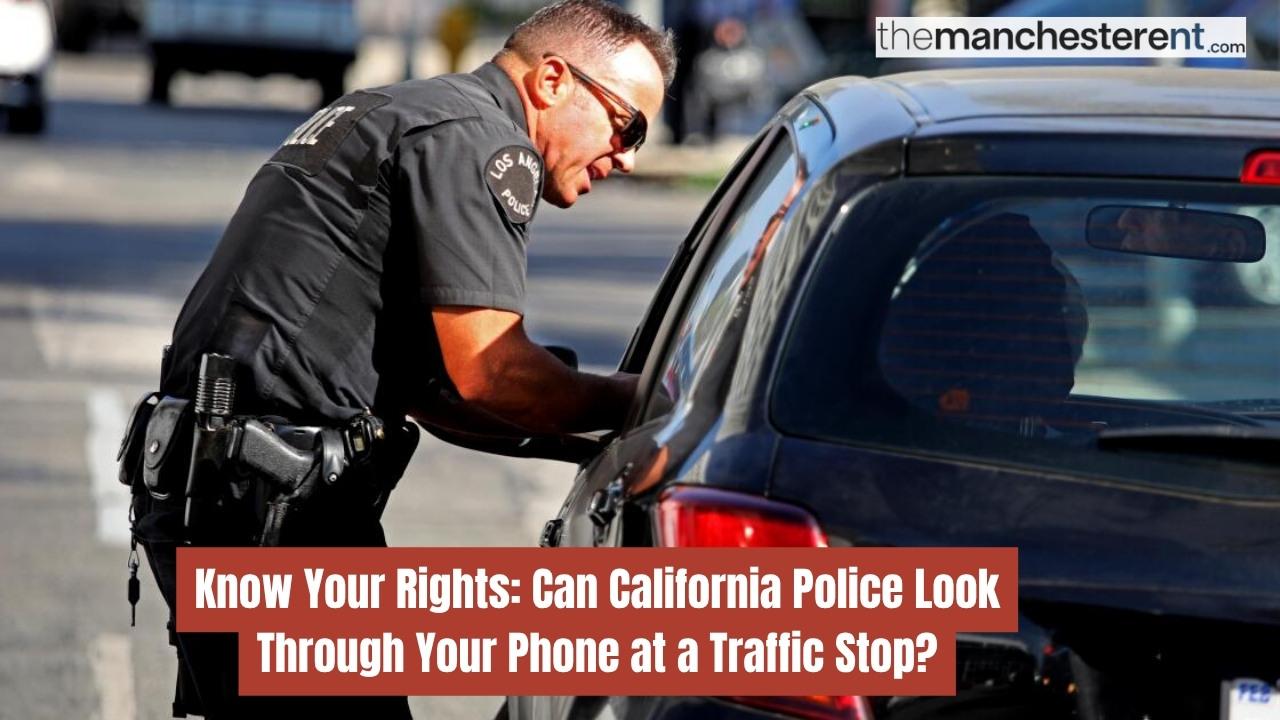Your smartphone contains your entire digital life, from private messages and photos to banking information and location history. When California police pull you over for a traffic violation, you might wonder whether officers have the legal right to search through your phone. The answer is more nuanced than you might expect, and understanding your constitutional protections can make all the difference in protecting your privacy and your rights.
Understanding Your Fourth Amendment Rights
The Fourth Amendment to the United States Constitution provides fundamental protection against unreasonable searches and seizures by law enforcement. This constitutional safeguard requires police to obtain a warrant before searching your personal property, including your smartphone. A valid search warrant must be based on probable cause, meaning police must demonstrate to a judge that they have reasonable belief your phone contains evidence of a specific crime. The warrant must also clearly specify what evidence officers are looking for and exactly which data they expect to find on your device.
California law reinforces these protections through the state constitution, which often provides even stronger privacy rights than federal law. This dual layer of protection means California residents enjoy robust safeguards against warrantless phone searches. According to the constitutional framework, police cannot simply browse through your phone because they feel like it or because they stopped you for a minor traffic violation.
The Landmark Riley Decision Changed Everything
In the year of heightened arrests across America, over twelve million people are arrested annually, with the majority facing misdemeanor charges rather than serious felonies. Most individuals arrested are never convicted of any crime. Before twenty fourteen, the legal landscape surrounding phone searches during arrests remained murky and inconsistent across different jurisdictions.
The landmark Supreme Court case Riley versus California fundamentally transformed how law enforcement can interact with smartphones during traffic stops and arrests. On June twenty-fifth, two thousand fourteen, the United States Supreme Court issued a unanimous decision that would reshape digital privacy rights for millions of Americans. The Court ruled that police cannot conduct warrantless searches of cell phones seized during arrests unless exigent circumstances exist.
The case involved David Leon Riley, who was stopped in California for driving with expired registration tags. Officers discovered firearms in his vehicle, arrested him, and seized his smartphone from his pocket. Without obtaining a warrant, police accessed stored information on the phone, including text messages, photographs, and videos. Based partly on this digital evidence, officers charged Riley with an unrelated gang shooting that had occurred weeks earlier. Riley moved to suppress the phone evidence, arguing the warrantless search violated his Fourth Amendment rights. Lower courts rejected his argument, but the Supreme Court reversed these decisions.
Chief Justice John Roberts wrote the opinion emphasizing that cell phones are fundamentally different from traditional physical objects. The Court recognized that data contained in smartphones implicates privacy concerns that are far more extensive than those associated with typical searches of personal items like wallets or bags. The decision acknowledged that smartphones hold vast quantities of personal information literally in the hands of individuals, exposing unprecedented amounts of private data if searched.
When Police Can Legally Search Your Phone
Despite strong constitutional protections established by Riley, specific circumstances allow California police to search your phone legally, even without your explicit consent. Understanding these exceptions is crucial for protecting your rights during any interaction with law enforcement.
Police can search your phone if they obtain a valid search warrant signed by a judge. To secure this warrant, officers must clearly articulate probable cause and identify specifically what evidence they expect to find. The warrant must describe exactly which apps, files, or data categories police intend to examine. For example, if police are investigating an armed robbery and a judge signs a warrant allowing investigators to search your phone for text messages discussing the crime, you must comply with this warrant or risk obstruction charges.
Another significant exception involves voluntary consent. Police can legally search your phone without a warrant if you freely and voluntarily agree to the search. Officers frequently ask drivers during traffic stops whether they can look through their phones, using casual language like asking if they mind checking the device. If you consent, you immediately waive your constitutional protections against warrantless searches. Importantly, consent must be truly voluntary and cannot result from intimidation, deception, or coercion by officers.
Emergency situations create another exception known as exigent circumstances. In genuine emergencies where police believe immediate action is necessary to prevent imminent harm, destruction of evidence, or escape of a suspect, officers can conduct warrantless phone searches. Courts strictly scrutinize these exceptions, requiring clear evidence of genuine urgency rather than routine investigation. For instance, if officers reasonably suspect someone plans imminent violence and your phone might contain details of the attack, they could search without a warrant to prevent danger.
Individuals on parole or probation face significantly reduced privacy rights. California parole and certain probation terms typically allow warrantless searches of your property, including your smartphone, at any time. Officers do not need probable cause or reasonable suspicion to search a parolee’s phone if they suspect criminal activity.
When Police Cannot Search Your Phone
Understanding when police lack authority to search your phone is equally important as knowing the exceptions. Several situations explicitly prohibit warrantless searches under California law and federal constitutional protections.
During routine traffic stops or arrests, police cannot automatically search your smartphone. The Riley decision established that a warrant is usually necessary to search a phone, even after placing someone under arrest. This protection applies regardless of the reason for the traffic stop or arrest. For example, if police arrest you for driving under the influence and seize your phone, officers cannot legally scroll through your messages, photos, or applications without obtaining a warrant or your consent.
Police cannot conduct random or suspicionless phone searches. Officers must have reasonable suspicion, probable cause, or a valid warrant before demanding to inspect your device. During a routine traffic stop for a minor violation like a broken taillight, police asking to search your phone without any reasonable suspicion of criminal wrongdoing have no legal authority to proceed with the search if you refuse consent.
Officers cannot exceed the scope of a valid search warrant. Even when police have obtained a warrant, they can only search the specific data categories and time periods described in the warrant documentation. A warrant authorizing examination of text messages related to drug trafficking does not permit officers to browse through your photo gallery, email correspondence, or financial records unless those categories are explicitly included.
What Happens During a Traffic Stop
Traffic stops represent a gray area where Fourth Amendment rights intersect with practical law enforcement needs. Police have discretion to determine whether probable cause exists to search a vehicle, and drivers can withhold consent for vehicle searches. However, smartphones receive special protection that goes beyond ordinary vehicle contents.
If police look through someone’s phone during a traffic stop, they will discover far more personal information than whether prescription medication in the center console is legitimate. The Riley decision recognized this reality by ruling that even at traffic stops, police cannot browse through phones beyond what is visible on the screen. Officers may observe what appears on your lock screen when they encounter your phone. For instance, if the lock screen displays a message from a contact with a suspicious name saying something potentially incriminating, officers might use this visible information as evidence. However, they cannot open applications, scroll through volumes of text messages, or navigate through your photo gallery without a warrant.
The traffic stop itself can provide officers with grounds to request a search warrant, but it cannot replace the constitutional requirement for that warrant. Police must articulate specific facts supporting probable cause and obtain judicial approval before conducting a comprehensive search of your device.











Leave a Comment